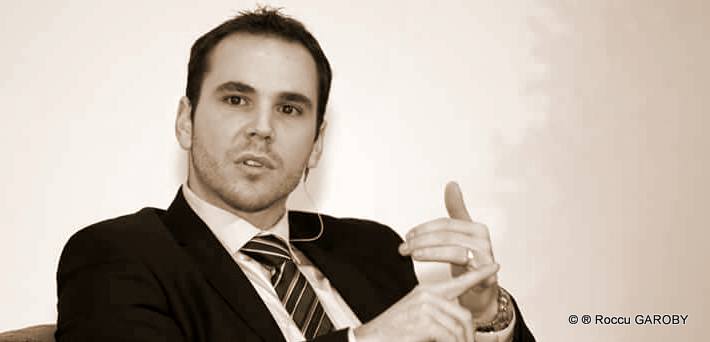There is a kind of nationalism in Europe that is not only progressive, but has the potential to reinforce European integration. The so-called sub-state nationalists are not building on a vision of nation statehood, but on direct representation in the European Union, focusing on the decision-making at the lowest level and protection of the territory. These democratic and environmental concerns mean that there is much potential for political convergence between regionalists and Greens in terms of the solutions they advocate.
More and more regions in Europe demand independence, greater autonomy and sovereignty. Do you think there is increased momentum for regionalism today?
Nicola McEwen: We need to distinguish between the different forms of regionalism. First, there is the regionalism of territories that seek more autonomy within a Member State. Here, it is hard to identify a pattern that is different from what we have seen in previous decades. I think there is a general sense of dissatisfaction, that the dream of European regionalism is gone. We don’t have that idea anymore, that regions could be the dominant actors in the EU framework. And the disappearance of this idea has generated a sense of frustration.
Secondly, there’s the case of territories, such as Catalonia or Scotland, which see themselves as nations, and are seeking to become Member States of the EU. There, what is new is the definition of what they want to achieve as a Member State: it is not a classic 20th century sovereign statehood in the traditional sense, but something more nuanced and more integrated into transnational networks.
Roccu Garoby: The term regionalism is too narrow. In the European Free Alliance [1] (EFA) we have three main groupings: the minorities, such as the Hungarian speakers in Transylvania; the autonomists, of which some call themselves regionalists, but not all; and the ‘independentists’, who call themselves nationalists, because they fight for the right of self-government and self-determination. But even they are different from state nationalists who are looking back to the past to some lost hegemony – such as the Front National in France or the Freedom Party (FPÖ) in Austria.
Stateless nationalists are, most of the time, progressives. Just look at Catalonia, Scotland or the Basque Country. And they have a momentum – a rise of self-determination movements for different reasons. The Europe of regions we tried to create at the beginning of the 90s has never been created, the Europe of states has failed in certain fields, especially when it came to tackling the crisis, and these regions believed that, as a small state, they could recover or do a better job than the big states at tackling certain challenges, particularly in social and economic terms.
And if you look at the developments of the last few decades you can see that having new states is normal. After 1945, we had only around 50 states in the world, and now we have 193 in the United Nations. Look at Kosovo, which became independent just a few years ago; or Slovakia, which became a state about 20 years ago. This is a trend because the UN Charter’s principle on self-determination allows this to happen, and because the current structure of states does not work.
Does that mean that nation states are less relevant or less salient in the global order, as most of the challenges we face aren’t confined within borders?
NM: This form of nationalism is not building on a vision of nation statehood, but on direct representation in the European Union. The independence being sought would be accompanied by a whole range of shared institutional and economic arrangements with the state they are ostensibly seeking to secede from. This form of embedded independence is a new phenomenon. Sub-state entities have new demands which will undoubtedly be influenced by changes in the global environment. In some ways, nation states may be becoming less crucial in the global arena due to the role the EU plays on behalf of its Member States and the rise of other players.
But, on the other hand, we can see that European integration has also given greater authority to the nation state, because the governments of the nation states are the ones sitting at the table and participating in decision making – even where it may be the regions that may have competence in a number of areas. By this, I mean areas like the environment, agriculture, fisheries, and others where the EU has an expanded reach.
Could accepting this reality and strengthening regional competences be a way of consolidating and advancing the European project?
RG: Yes, and that’s exactly why we need to distinguish between state nationalism and sub-state nationalism. State nationalism is far-right, and wants to give competences back to the Member State, while the sub-state nationalists are pro-European. They want to have a different Europe, a Europe of the people. They want to make it right for the people of Europe, because Austria has more power to define European fisheries policy than Corsica or Galicia and this is not acceptable. So, once you give them the right to be part of the decision-making in Brussels, you don’t need to give them a fully independent status anymore. This is one key element if we want to reshape Europe. That would create the example of the first-triple layer federalism (Region/Nation – State – Europe). Because at the moment federalism is based on two levels: the federal state and the states – as in the US.
Two centuries ago when the modern French state was built, it was built around three layers: the commune, the department and the state. This structure and size were ideal for controlling and governing the territory, and meeting the needs of the people at that time. Since then, however, the world has changed drastically. The exchange of goods, services and capital has become much faster; people can travel all over the world. So, the state doesn’t seem to suffice, and for many issues, the European Union is the right level to address problems – that’s a reason to demand more integration. Equally, the regions are the right level to address local issues – so the regions and the EU perfectly complement each other.
NM: But here, I would add that the problem with designing a constitutional framework with three layers, from the top down, is that you don’t have parity across Member States, in terms of political structures. So it is not so obvious where that third layer would be. Sometimes you have to create it. The other challenge is the growing significance of cities and municipalities, some of which are more populous than existing Member States or autonomous regions. So the patterns are very complex, which makes designing a European structure to accommodate those relations very, very complicated.
How can you create an identity once you have a triple-layer structure? Are there three identities or only one? And how do they co-exist?
RG: You can’t create identities, but they can evolve with time. For example, the modern French state was built after the French revolution, but the shared feeling of being French only arose after the first World War, when the Basque, the Corsican, and other minorities, as well as the people of the colonies, risked their lives together for their homeland. And today, if you look at the current generations in Europe, you can see that they are more European than the previous ones. This is in part because of the exchange programmes, such as Erasmus, that gave them shared European experiences.
NM: We spoke about nationalism as an issue of self-determination. I think the second dimension of nationalism is about the politics of nation building: we can use institutions, symbols, cultural norms and discourses to reinforce a sense of national identity; a national distinctiveness. The nationalism scholar Michael Billig talked about the so-called “banal nationalism”. This refers to everyday symbols and rituals that we all share and that we all take part in to define what we share as a community. We can see attempts to do that in the EU. In this context, currency can be seen as a shared symbol that is recognised by many. In Jacques Delors’ vision, a social Europe involved nurturing a feeling of solidarity to strengthen the feeling of community identity. Unfortunately, some of that has gone now in the EU with imbalances between countries, the prevalence of concerns with the internal market, and competition and trade.
Can the EU be a channel to allow regionalist sentiments to express themselves by bypassing the national level?
RG: Stateless nations and minorities are very often pro-European. For them, the EU is seen as a tool to protect themselves. But the European Commission needs to be a partner in that; it cannot stand behind the European Council, saying that the issue of independence or autonomy is an internal matter of the Member States – it isn’t.
NM: The European Commission acted as a partial player in the Scottish independence referendum, when Commission president José Manuel Barroso said it would be extremely difficult for an independent Scotland – or Catalonia – to join the EU, which is not even true, because there is nothing in the treaties about this, and there is no precedent. I think when we will be confronted with a nation within a Member State seeking its sovereign status in the context of the EU, treaties will need to have a provision for internal enlargement in order to clarify the process.
I think the EU can be, and often is, a force for recognising minority rights, or citizen rights, and even social rights. What the EU cannot do at the moment is provide recognition for territorial rights, as there is no mechanism for doing so other than the Committee of the Regions, which is ineffectual, in that sense. So the representation of regions is mainly about raising the profile of a region among the policy-making community. The real impact of regions is internal: inside the Member State, therefore, they are mainly trying to shape the Member State’s policy in the EU.
Although regionalism, and especially sub-state nationalism, might seem like a process of disintegration, it can just as easily be a force for integration. From the point of view of those sub-state nations, stateless nations, or at least from the nationalists within them, the forces of regionalism and nationalism are there to help them engage in the integration process as individual players, rather than indirectly through Member States. But as long as we continue seeing this as an internal matter for Member States, we are privileging them to the detriment of the regions as well as Europe as a whole. If the European project is about nurturing a sense of commonality or citizenship at the EU level, it should see sub-state nations as allies.
Have Greens managed to successfully build alliances with sub-state nationalist groups? How can they represent their interests?
RG: The EFA and the Greens have sat together in the parliament since 1999. This might sound like a paradox, but both party families agree on the same issues, but for different reasons. The Greens will say that global warming is a great threat and we need to tackle it globally, while regionalists focus on protecting their territory from massive tourism and damaging industries. So both the local and the global point of view will result in the same political solutions. Another example is nuclear energy, which is often used by very centralised and powerful states, like France, that impose their will on territories that would not want to use this kind of energy. Often, both regionalists and Greens are against nuclear energy, either because it is dangerous, or because it is imposed by a centralised state, or both.
Also, the Greens are one of the few left-wing parties that are not that centralised, but mix individual and collective rights, and believe in a state that shares the wealth amongst the people, simply as a tool, and not as the goal in itself (which would often lead to the acceptance of a centralised state). This is why Greens are among the federalist forces in Europe. They are also the new progressive force, because by now all Social Democrats have, to some extent, accepted neoliberalism. Even though most of the so-called moderate left-wing parties want to achieve some social rights, LGBTIQ rights, and so on, they still remain in the realm of the liberal market economy. Here, the Greens, together with the sub-state nationalists, represent an alternative.
NM: A very good example is the cooperation between the Scottish National Party (SNP) and the Scottish Green Party. The latter is a wholly autonomous party, which has an alliance with the Green Party of England and Wales. It has undergone a very significant transition in the last few years; it used to be quite ambivalent on the issue of independence and the issue of European Integration. This has now truly changed, and today their message is following: there is no real independence without a real EU. This party was partnering with SNP when they were campaigning for Scottish independence, and in the context of the movement, that helped the SNP make it visible that the “yes” for independence is broader than just one political party. In the 18 months since then, it has also helped the Greens, as they have managed to triple their membership and overtake the Liberal Party in the latest election.
Do you consider the issue of regionalism to be a specific trend and force to be reckoned with in the near future of European politics? Is it a defining feature of what Greens should promote for a further progressive and democratic integration of Europe?
NM: Regionalism and nationalism will remain important within those strong identity regions across Europe, and it is a dominant feature of politics which all parties have to engage with. Most Green parties in these territories already engage with issues of identity and self-government. Whether regionalism will be a dominant issue in the years ahead is difficult to predict from this vantage point. What is clear is that other dominant issues – whether it is the economy, trade, climate change, the refugee crisis, or the like – have a regional dimension. Any EU or national policies seeking to address these issues will need to harness the resources and political will of regional or sub-state governments if they are to be effectively implemented. This may be easier to achieve if these governments are involved in the policy-making process, too.
RG: I would say the question of self-determination has become more and more important within the EU. Five years ago, nobody talked about it and now everybody, at least in the EU institutions, is thinking about how to ensure that democracy prevails in Scotland, in Catalonia, and so on. And unless the EU Member States agree to reshuffle the EU in a more open and democratic manner within the next months – and I don’t think it is going to happen – this question will be even more important in 2019 election. It will even be part of the European campaign, especially if, as I would like to see, EFA presents its own Spitzenkandidat (‘leading candidate’). However, the Greens should think about strengthening their political alliance with the nationalists and regionalists at both local and European levels. Despite some differences, the Greens and EFA parties are the complementary driving forces of a renewed progressive platform within the European Union. One way to strengthen their alliance would be to see the Greens supporting democratic movements from Scotland to Transylvania, from Basque Country to Silesia, from Corsica to Friesland. The Greens should stand up for democracy and stand by democratic movements.
[1] The European Free Alliance (EFA) Group in the European Parliament and currently includes representatives from Scotland, Catalonia, Wales, Valencia
and Latvia. EFA MEPs advance the cause of Europe’s stateless nations, regions and disadvantaged minorities.



